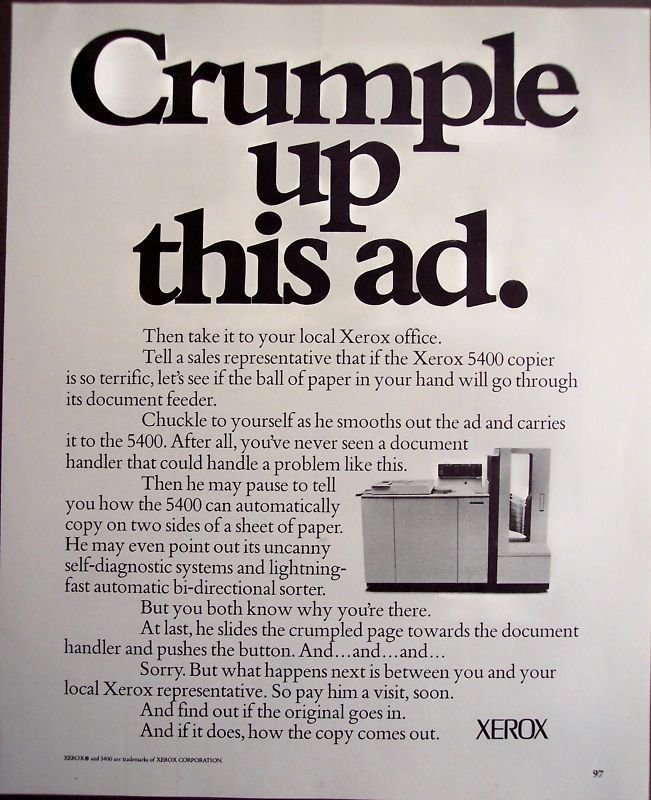What is Copywriting and Why It Should Matter to You: A Mental Health Copywriter Perspective
You are a copywriter? What do you do?
You mean that little c with a circle around it, right? “No, that would be a ‘copyRIGHT’ – the intellectual property or ownership of some form of media.”
These are just a few of the questions that I get when I tell people about my business.
For those of us not trained in the marketing world, there is some confusion about what exactly copywriting is.
History of Copywriting
Copywriting dates back to the first written language when people began communicating in writing. In more recent history, the development of the printing press in the 15th century launched copywriting as it is currently known today. By the 1960s, copywriting combined with engaging images as a form of marketing and advertising became increasingly popular.
So, what is a copywriter?
A copywriter is a professional writer that focuses on writing “copy” or “words” for marketing and advertising purposes. Copywriters create many different forms of copy – blogs, websites, landing pages, articles, long-form copy like white pages, social media campaigns, and many more. Copywriters are expert writers – trained in writing that is conversational, motivational, informational, and compelling.
Words are important.
I do not think I need to convince you of this. But just in case. Here’s an example:
You go to the website of your favorite retail brand. But when visiting this website, you notice a glaring grammatical error and words on the page that do not seem to fit together. You immediately click off the site and head to your second favorite brand.
As you scroll through social media, you pass by an advertisement for an online course on how to build 6-figure wealth from your computer. The text on the page draws you in. It seems to list out your exact desires for your life (did they read your journal this morning?!) - financial freedom, time with your family, and never having to sit in a poorly-lit cubicle again. So, you click the button stating “Click here to see how you can experience this dream for yourself”.
In both of these situations, you read someone’s copywriting – some good, some not-so-good.
The truth is that you notice bad copy – writing with grammatical errors, spelling mistakes, and sentences that don’t flow. But with good copy, you are immediately pulled in – into the story being told, or the product being sold... unaware of how or why, you just knew that the words on the page were intriguing.
What are the elements of great copywriting?
Good copy has a target audience in mind.
When I first sit down to write, the main question I ask myself is “who am I writing this to?” For copy to be engaging and compelling, I may even create an avatar of my ideal readers – what are her demographics? What are his likes and dislikes? What are the things that motivate her?
Copywriting is about the reader – not the product or business. Having a clear image of who the ideal reader is makes it easier to craft the words that propel the reader toward action.
This brings me to my next point:
2. Copywriting has a clear Call-to-Action (CTA).
Old Xerox advertisement
There is a specific purpose for writing copy – whether engaging, compelling, persuading, informing, or connecting with the audience. Take a look at the copy written for marketing and advertisement during the time of the printing press. The call to action in the text is clear – buy a Xerox copier.
Today, copywriting is in almost everything you see – websites, advertisements, commercials, visual media, social media, blogs, articles, educational materials, and so on.
3. Professional research is the foundation of copywriting.
Copywriters are professional researchers. Copywriters spend the necessary time conducting quality research to find the most up-to-date information on the subject that they are writing about. This is vital as great copywriting is informative and helpful for the reader. The claims that the copywriter makes must be backed by solid research and evidence. This is why I (and any other good copywriter) will only write for products, businesses, and projects that are in line with my values and mission.
4. A copywriter must have an understanding of SEO.
Copywriting created for an internet platform incorporates SEO principles. Search engine optimization (SEO) is a tool used to maximize the likelihood of a product, business, or service being crawled, listed, and ranked by search engines, such as Google.
Although no one knows exactly how Google works (the majestic creature that it is), there are many techniques that when incorporated into copywriting produce good results with Google –
Quality content
Adequate length,
Keyword research and placement
Headings
Backlinks
Meta-descriptions
Title-tags
Just to name a few (a blog to come on these details :) ) Copywriting written for an internet-based platform should include many of these elements. An SEO copywriter, like me, uses tools that help to analyze front-end or back-end SEO elements for a particular website or business.
So, is copywriting the same as content creation?
Copywriting and content creation both involve research, writing, and developing content. Copywriting could include content creation. Content can be strictly for informational purposes. But copywriting always serves a greater purpose - with a strong Call-To-Action.
Who is copywriting for?
EVERYONE. No really. It’s for everyone.
In your business and in your personal life - you are using copywriting elements. Even if you are posting on your personal social media page – there is a purpose, right? It might be to get more followers, to get your followers to like your post, or to share with the world about your favorite vacation spot - so that they want to go there too.
All businesses need a copywriter. They just might not know it yet.
Stay tuned for my next blog post to answer all those questions about why you need a copywriter.
Ashley, LCSW




